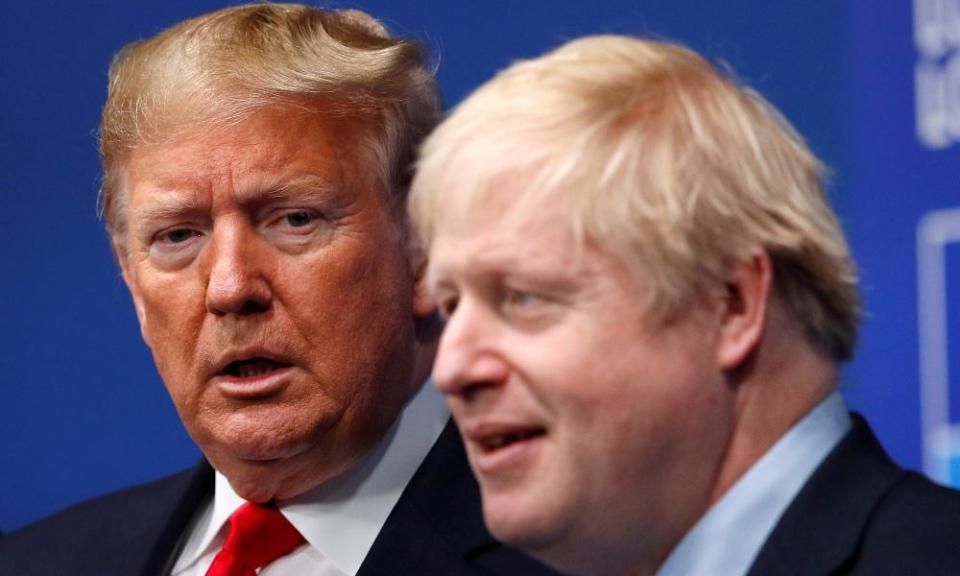No 10 say fallout between Trump and Johnson 'overblown'

Downing Street has sought to play down the significance of a difficult phone call between Donald Trump and Boris Johnson over the UK’s decision to allow Chinese company Huawei to help build the its 5G network.
Trump was reported by the FT to have been “apoplectic” about the decision taken by Johnson, with the phone call last week said by one official to have been “very difficult” and tense.
A No 10 source the account was overblown and said they did not recognise that characterisation of the call.
They pointed to a statement from the White House after the Huawei announcement, saying: “Today, President Donald J Trump spoke with Prime Minister Boris Johnson of the United Kingdom. The two leaders discussed critical regional and bilateral issues, including telecommunications security.”
However, after the decision Mike Pence, US vice-president, said the Trump administration had made its disappointment at the UK decision “very clear to them”.
The president’s alleged reaction raises the prospect that Trump and his White House may look less favourably on Johnson’s desire for a post-Brexit trade deal with the US, despite his favourable comments about the prime minister in the past. Before the decision, the US had also threatened to withdraw some intelligence and security cooperation with the UK if its Huawei links continued.
The US has an outright ban on Huawei in its telecommunications networks and had sought to persuade allies to adopt the same approach over concerns the company is too close to the Chinese government.
Johnson is also facing a headache over Huawei on the domestic front, as a number of his Tory backbenchers are planning a revolt over the decision.
Conservative critics of his decision to use the company will push for a commitment from the government that it must be forced out of Britain’s telecoms infrastructure within three years.
A group of anti-Huawei Tories want an assurance that the government that it will also be ultimately ejected from the 4G network as well.
The UK made the decision to allow Huawei to supply parts of the network, even though it is a “high risk” provider, on the basis that any security concerns could be mitigated.
The government also acknowledged there were few alternatives to allowing Huawei into the network if 5G was to go ahead on time.

 Yahoo Finance
Yahoo Finance 